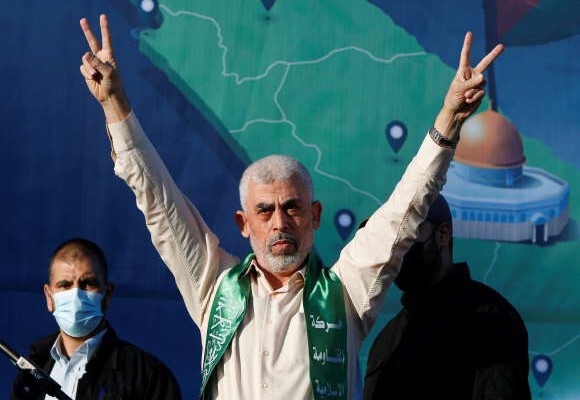Israel’s hollow threats

The heightened rhetoric smacks more of desperation than strength
We have been taught by experience that the more resistance against Israeli occupation escalates and becomes uncontrollable, the more Israeli leaders resort to issuing public threats: to return Lebanon to the stone age at times, or to assassinate Palestinian leaders associated with armed resistance (three in particular: Islamic Jihad leader Ziad Nakhaleh; the head of Hamas’ military wing in the West Bank Saleh al-Arouri; and the movement’s leader in Gaza Yahya al-Sinwar).
The threat to take Lebanon back to the stone age was responded to by Hezbollah leader Hassan Nasrallah in his latest speech. With a sardonic but confident smile, he replied: “It’s you who will go back to the stone age. If the spark of war is ignited, there’ll be no state called Israel left.” If the Israelis are wary of dismantling a tent erected in occupied Lebanese territory for fear of retaliation, they’re unlikely to dare bomb the country, let alone try to destroy it.
Their threats to assassinate Palestinian resistance leaders were also greeted with disdain, for two main reasons: first, because these leaders do not fear martyrdom but yearn for it; and secondly, because it is not capable. The targeted leaders have become more experienced and cautious. More importantly, any attempted assassination would lead to war and bring thousands of missiles raining down on Tel Aviv and all other occupied cities.
The occupation state called off assassination operations in Lebanon after Nasrallah warned it of fierce retaliation if it were to target any of Hezbollah’s leaders or its Palestinian guests. All the Palestinian resistance figures present in Lebanon are under the protection of Hezbollah’s security forces.
I have been in touch with two such figures, one in Gaza and the other in Lebanon, who provided some insights into how developments could unfold on both fronts.
Sinwar told a visiting delegation of exiled Hamas leaders that while they were living comfortably in Doha or Istanbul, the Palestinian people were suffering hunger and poverty. He himself had not seen his children or family, or used a phone, for more than six months. He said the movement’s fighters and cadres had not received their salaries since Qatar cut its aid by more than two thirds, and that this situation could not continue.
The other official, currently present in Lebanon, said he thought war was inevitable and may be imminent, and expected it to be triggered by an Israeli assault to take over the al-Aqsa mosque. He said if it were to break out, it would not be brought to a halt via various mediations like previous outbreaks. Prolonging the war would be part of a comprehensive strategy, he said, adding that we are prepared for all eventualities.
Another point worth noting is that at the recent meeting of Palestinian faction leaders in al-Alamein, according to a participant, the issue of escalating Palestinian resistance in the West Bank was not brought up at all. The Egyptian hosts did not ask for them to be stopped, both because they are focused exclusively on Gaza, and because they knew such a demand would not be heeded.
According to this same source, resistance operations are set to increase in the West Bank, as is arms smuggling across the 600-km border with Jordan, assisted by patriots in the Jordanian border police and military. New advanced weapons from various countries and sources, including anti-armour Kornet missiles, are expected to make their way into the hands of West Bank resistance fighters in the weeks and months to come.
These weapons transfers, and the funding of resistance cells in the West Bank and support for the families of martyred fighters, are being managed by an operations centre in the Gaza Strip. The Israelis know that, which is why they have been threatening to mount an assault against the Strip despite the current calm.
Israel is in a deep state of crisis these days. The military-security threat it faces is both internal and external. Its leaders know that the impending war will be region-wide and waged on several fronts. That is why they try to reassure their settlers by issuing threats they do not dare act on.
Who can count the number of times Netanyahu has threatened to bomb Iran, destroy Hezbollah, invade the Gaza Strip, assassinate Sinwar or Nakhaleh or Arouri or Nasrallah, or take Lebanon back to the stone age? But it is the Israeli occupation state itself whose demise appears closer than at any previous time.
https://www.raialyoum.com/israels-hollow-threats/
 TheAltWorld
TheAltWorld 
0 thoughts on “Israel’s hollow threats”